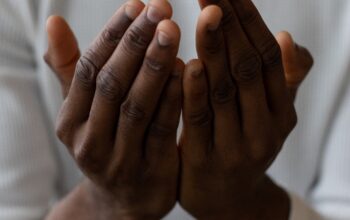African Americans and multiracial people experience unique mental health needs. From vicarious stress caused by racial trauma to increased burnout from caring for family members because of cultural expectancy, therapists and other mental health providers should be aware of these distinct needs. Below, we learn more about the types of therapy that many Black people benefit from, as well as the barriers preventing them from getting it.
Barriers to Effective Therapy Services for Black Americans
Finding the right therapist is challenging for anyone, but can be especially difficult for Black people. The barriers to proper care listed below are just a few factors that affect the Black population and how mental health treatment looks different compared to that for White people. Let’s take a closer look.
Internalized Responsibility
Regardless of ethnic background, many women become caregivers for family members at a young age, becoming adults entirely too soon. This “adultification” affects Black adults more than most, and women especially. According to the American Psychological Association, this process results in burnout and stress. Black women are especially prone to carrying the burdens of their family unit without external emotional support and to the personal experiences of negative race relations, adding to the internalized responsibility of trying to help others around them cope with racial trauma.

Mental Health Stigma
Unfortunately, mental health stigma is particularly pervasive in the United States, affecting those of any racial identity. However, the National Alliance on Mental Health reports that more than half of African Americans feel that mental illness is a sign of weakness. These beliefs create a powerful barrier to seeking help for these conditions, the first step for which is often therapy. One reason for this barrier may be a sense of shame within the Black population surrounding mental health. Only by breaking down this stigma for those of any racial identity can we begin to help African Americans seek the therapy they need as well.
Socioeconomic Status
A Black person today has an average income slightly higher than just ten years ago, but it is still not enough compared to White people and the general population. Economic growth has not supported the Black population like it has other races. More Black adults reported poor access to healthcare because of location and transportation availability, access to health insurance coverage, educational attainment, community resource opportunities, and average household income. Black youth with mental health needs are especially vulnerable based on socioeconomic status compared to other ethnic groups.
Navigating the Healthcare System
The healthcare system in the United States is becoming more complex and health literacy is falling behind. The vast majority of those attempting to find coverage or a provider report difficulties. The Black population is disproportionately affected because of a lack of community resources in lower-income neighborhoods, lower rates of educational attainment among Black youth, and more. Health insurance coverage does not always mean that a person will find a provider, as it’s challenging to find one that accepts the right coverage and is accepting new patients. This process is tedious, even for those who understand it.
Systemic and Structural Racism
Racism within our political and economic systems affect the Black population from the financial aid they receive to insurance coverage they are eligible for. These forms of racism exist on a structural level and are changing only with political and economic reform.
Because systemic and structural racism exists, many Black people fear discrimination within the healthcare system. Coupled with mental health stigma, encouraging those with mental health needs to seek the emotional support they need has proven difficult in the past. However, as this racism is being addressed and slowly changing the landscape of our healthcare system, more Black adults are receiving appropriate care.
Being Uncomfortable With the Topic
Many Black patients are not comfortable bringing up the topic of racism with their therapist, but will speak about it if a therapist brings it up first. This can be an uncomfortable topic to broach, but it is important to discuss with patients of color. Most therapists aren’t sure how to bring it up or what they might discuss. However, it’s also important to reiterate that conversations with a therapist are confidential so any patient feels comfortable opening up about their experiences.
Lack of African American Therapists
While approximately 17% of African Americans struggle with their mental health, only 4% of therapists are Black. It’s proven that, regardless of ethnic group, most people prefer seeing a provider that is like them. It makes sense that speaking with and opening up to a person who looks like us gives us a sense of comfort that we have common interests or major life experiences. More is being done to recruit and retain Black therapists, but it will take time for this to reflect on the current number of practicing providers.
Fewer Culturally Competent Providers’
Even providers who aren’t Black can become culturally competent by learning more about their patients and their ethnic background. Many people of color report different symptoms for the same mental illness. For example, depression often presents with physical aches and pains in African Americans, whereas White people may not experience this. Providers who make the effort to understand these medical differences and the African American culture will help create an open dialogue with their patients of color that can be mutually beneficial.
Black People and Therapy: Overcoming Challenges for Better Mental Health
No matter the reason you are seeking one, finding and seeing a therapist regularly shouldn’t be a challenge for anyone, regardless of race. However, the number of Black people affected by healthcare disparities is astonishing and we should do more to address this problem. One such to do this is to raise awareness of the problem. Black Health Matters is helping to do just that this Mental Health Awareness Month by sharing more about our unique needs and struggles, stories of African Americans doing more in our communities, and helpful mental health resources.
The post Therapy’s Vital Role In The Black Community appeared first on Black Health Matters.



